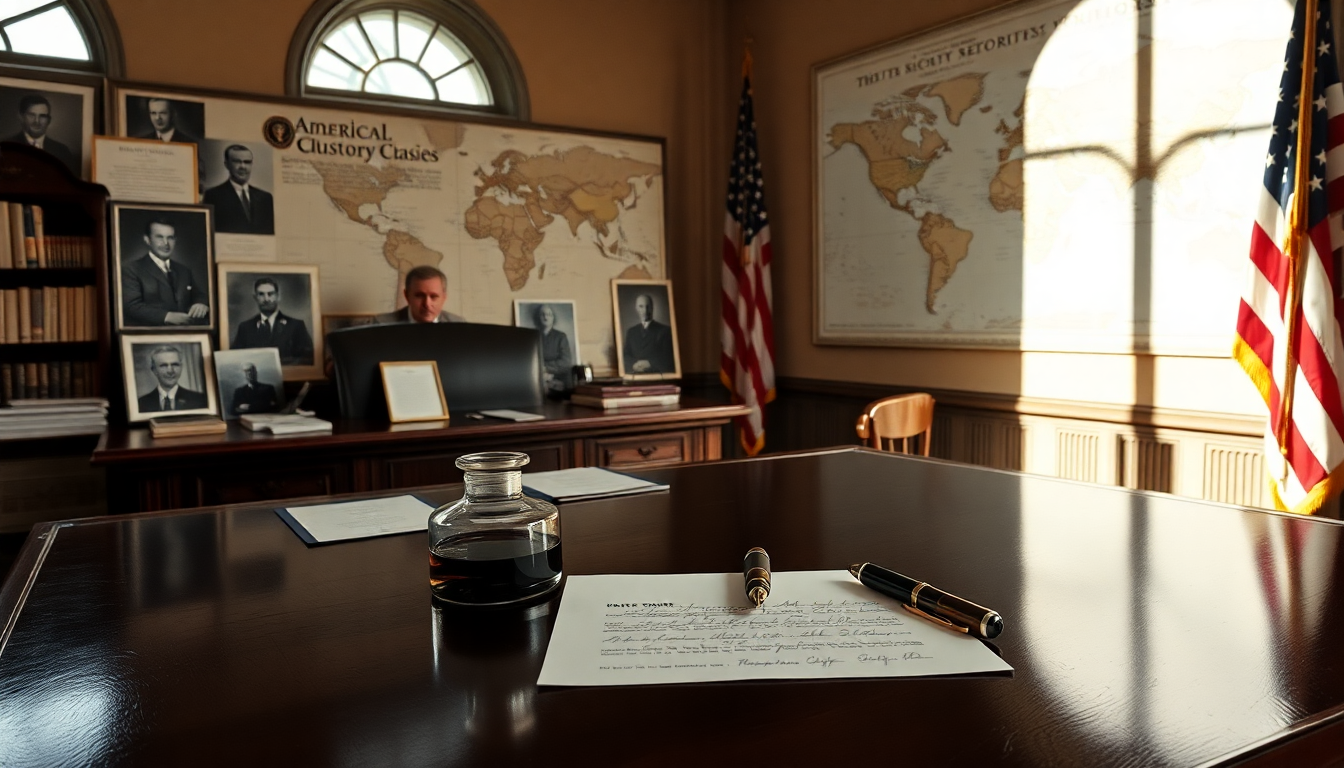Table of Contents
Throughout American history, there have been moments when presidents have spoken words that resonate deeply with the nation, especially during times of national security crises. These statements not only capture the emotions of the moment but also reflect the changing priorities and challenges the United States faces on the global stage. As we take a closer look at these quotes, we can identify patterns that show how America’s approach to national security has evolved over the decades.
Setting the Scene: Presidential Rhetoric Through the Years
In 1977, President Jimmy Carter took a bold step in foreign policy during a speech at Notre Dame University. He emphasized breaking free from the overwhelming fear of communism that had influenced American alliances and military actions. This marked a significant shift towards a more principled approach to foreign relations, moving away from supporting authoritarian regimes merely out of fear.
Fast forward to 1987, when President Ronald Reagan made a memorable call at the Brandenburg Gate, urging Soviet leader Mikhail Gorbachev to “tear down this wall.” This wasn’t just a catchy phrase; it represented America’s growing confidence in confronting and dismantling oppressive ideologies. Reagan’s words became a rallying cry that resonated well beyond the borders of the United States.
After the Gulf War, President George H.W. Bush powerfully declared, “This will not stand,” in response to Iraq’s invasion of Kuwait. His firm stance showed a readiness to use military force to uphold international norms and maintain regional stability, setting a tone for future U.S. interventions.
Then came the September 11 attacks, which prompted President George W. Bush to famously state, “I can hear you! The rest of the world hears you.” This moment captured the urgency and determination of a nation united against terror, pushing America into a more aggressive foreign policy that would shape its actions in the Middle East for years to come.
Modern Presidential Quotes and Their Impact
President Barack Obama brought a more nuanced perspective to foreign policy. In Berlin in 2008, he said, “I speak to you not as a candidate for President, but as a citizen.” This framing signaled a shift toward multilateralism and the importance of global citizenship, highlighting partnerships over unilateral actions.
However, the complexities of the Syrian civil war led Obama to declare a “red line” regarding chemical weapons, revealing the tough balancing act of foreign policy where threats must be weighed against the consequences of military intervention. It was a precarious position that showcased the challenges leaders face in modern conflicts.
When President Biden commented on the evacuation from Afghanistan, he promised there would be no chaotic scenes like those of past evacuations. However, the reality of the chaotic withdrawal starkly reminded everyone of the complexities involved in international relations and the limitations of U.S. influence abroad.
The Trump Doctrine: A New Approach?
In recent years, former President Donald Trump’s declaration, “They should have done the deal,” reflects his approach to foreign engagements, particularly with Iran. His administration took a hardline stance against nuclear threats, emphasizing military readiness as a deterrent against rogue states. This approach sparked debates about the effectiveness and ethics of relying on overwhelming military force in foreign policy.
Known as the Trump Doctrine, this philosophy suggests that the U.S. can engage militarily to neutralize specific threats without getting bogged down in regime change. This marks a significant shift from traditional military strategies that often led the U.S. into prolonged conflicts.
As we reflect on these presidential quotes and their contexts, it’s clear that national security rhetoric not only shapes public perception but also influences the strategic decisions that affect global relations. The evolution of these statements shows a landscape where American foreign policy is constantly adapting to address new challenges while navigating the complexities of international diplomacy.
Conclusion: What Lies Ahead for National Security Discourse?
The trajectory of national security rhetoric suggests a pressing need for clarity and consistency in U.S. foreign policy. As new challenges arise, the debate between military might and diplomatic engagement will likely remain central among policymakers. By understanding the historical context of presidential statements, we can gain valuable insights into future strategies and the potential for effective governance in an increasingly complex world.


